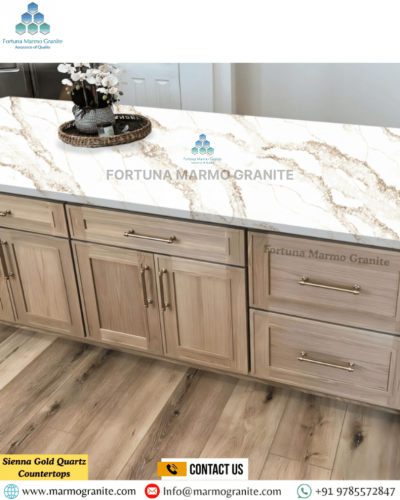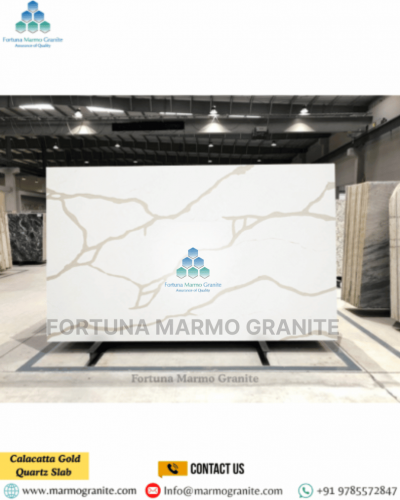Everything You Need to Know About Quartz Maintenance
Quartz countertops have undeniably earned their place as a top choice in both residential and commercial spaces, celebrated not only for their elegant visual appeal but also for their low-maintenance resilience. Unlike natural stones like marble or granite, quartz is engineered using a precise mix of about 90–95% natural quartz crystals combined with polymer resins and pigments, resulting in a surface that is not only stunning but also highly resistant to stains, scratches, and bacterial growth.
Routine care involves simple, yet effective daily habits—wiping spills immediately using a soft cloth and mild soap, avoiding harsh chemical cleaners that could break down the resin binders, and using cutting boards to prevent accidental scratches or dulling from knife edges. While quartz is non-porous and doesn't require sealing like natural stone, it is still vulnerable to prolonged exposure to heat, which can cause discoloration or cracking.


Why Choose Quartz? Understanding Its Unique Properties
Before diving into maintenance, it's helpful to understand what makes quartz so popular and how its composition influences its care. Unlike natural stones like granite or marble, which are porous and require periodic sealing, quartz is an engineered material. The manufacturing process involves grinding natural quartz into a dust or aggregate, mixing it with polymeric resins, and then forming it under intense heat and pressure. This results in a material that is:
- Non-porous: This is a major advantage for cleanliness and hygiene. Its non-porous nature means it resists staining much better than natural stone and doesn't harbor bacteria. It also eliminates the need for sealing.
- Highly Durable: Quartz is incredibly hard and scratch-resistant, making it ideal for busy kitchens. It's also resistant to chips and cracks under normal use.
- Low Maintenance: Compared to natural stone, quartz is remarkably easy to care for, requiring simple cleaning routines.
- Consistent in Appearance: Unlike natural stone, which can have significant variations, engineered quartz offers a more uniform look, allowing for precise design execution.
Daily Cleaning: The Cornerstone of Quartz Care
What You'll Need:
- A soft cloth or sponge
- Warm water
- Mild dish soap (pH-neutral)
The Process:
- Wipe Down Regularly: For everyday spills, crumbs, and general grime, a simple wipe-down with warm water and a soft cloth is usually sufficient. Do this as needed throughout the day, especially after cooking.
- For Light Cleaning: For a slightly deeper clean, add a few drops of mild dish soap to your warm water. Dampen your cloth or sponge and wipe down the entire surface.
- Rinse Thoroughly: After cleaning with soap, always go over the surface again with a clean cloth dampened with just warm water to remove any soap residue. This prevents streaking and film buildup.
- Dry if Desired: While quartz is non-porous, drying the surface with a clean, dry cloth after rinsing can help prevent water spots, especially in areas with hard water.
Tackling Tougher Stains: When Simple Doesn't Cut It
For Dried Food, Grease, and Grime:
- Gentle Scraper: For dried-on food bits, gently scrape them off with a plastic putty knife or a non-abrasive scrubber (like a Scotch-Brite non-scratch scrub sponge). Avoid metal spatulas or anything that could scratch the surface.
- Degreaser: For greasy residue, use a gentle degreasing cleaner specifically designed for quartz or a mild dish soap solution. Apply, let it sit for a few minutes (without letting it dry), then wipe and rinse.
For Persistent Stains (Coffee, Tea, Wine, Ink, etc.):
- Isopropyl Rubbing Alcohol: For many tough stains, isopropyl rubbing alcohol can be surprisingly effective. Apply a small amount to a soft cloth and gently rub the stain. Rinse thoroughly afterward.
- Non-Abrasive Household Cleaners: For more stubborn issues, you can try a small amount of a non-abrasive household cleaner like Windex (ammonia-free) or a dedicated quartz cleaner. Always test in an inconspicuous area first.
- "Poultice" Method (for very tough stains): For deeply set or notoriously difficult stains, you can create a "poultice." Mix baking soda with a small amount of water to form a thick paste. Apply the paste directly to the stain, cover it with plastic wrap, and let it sit for several hours or even overnight. The baking soda will draw out the stain. After the desired time, remove the plastic, gently scrub with a soft cloth, and rinse thoroughly.
Protecting Your Quartz: Prevention is the Best Medicine
Heat Protection:
- Always Use Trivets or Hot Pads: This is perhaps the most crucial rule. While quartz is heat-resistant, it is not heat-proof. Extreme or prolonged direct heat can damage the resin, leading to discoloration, scorching, or cracking (known as thermal shock). Never place hot pots, pans, slow cookers, or electric kettles directly on your quartz countertop.
- Avoid Heat-Generating Appliances: Be mindful of placing heat-generating appliances like toaster ovens or electric griddles directly on the surface for extended periods, especially if they radiate heat downwards.
Scratch Protection:
- Use Cutting Boards: Despite its scratch resistance, quartz is not impenetrable. Always use a cutting board for chopping and slicing. Not only does this protect your countertop, but it also helps keep your knives sharper for longer.
- Avoid Dragging Heavy Objects: When moving heavy pots, appliances, or decorative items, lift them rather than dragging them across the surface. Any grit trapped underneath could cause scratches.
Chemical Protection:
- Read Product Labels: Be diligent about reading the labels of cleaning products and personal care items. Many cosmetics, nail polishes, and hair dyes contain chemicals that can stain or damage quartz.
- Clean Up Spills Immediately: Don't let harsh chemicals or even seemingly innocuous spills sit on your quartz. The quicker you wipe them up, the less chance they have to cause damage.
Impact Protection:
- Be Mindful of Edges: The edges of countertops are often the most vulnerable to chipping. Be careful when handling heavy objects near the edges, such as cast iron pans.
Common Quartz Maintenance Myths Debunked
There's a lot of information circulating about quartz, and not all of it is accurate. Let's clear up some common misconceptions:
- Myth: Quartz needs to be sealed.
- Fact: Absolutely not! This is one of the biggest advantages of quartz. Its non-porous nature means it doesn't absorb liquids, so sealing is unnecessary and won't offer any benefit.
- Myth: You can put hot pots directly on quartz.
- Fact: As discussed, this is a definite no-no. While quartz is tough, it's not invincible against extreme thermal shock. Always use trivets.
- Myth: Bleach is good for cleaning quartz.
- Fact: While diluted bleach might be used in some extreme cases by professionals, it's generally recommended to avoid concentrated bleach on quartz. It can break down the resin over time, leading to discoloration. Stick to milder cleaners.
- Myth: Any general-purpose cleaner is fine for quartz.
- Fact: While many mild household cleaners are acceptable, avoid highly acidic, alkaline, or abrasive cleaners. Always check the ingredients and opt for pH-neutral, non-abrasive options.
Conclusion
quartz maintenance is not just about preserving the aesthetic appeal of your surfaces but also about ensuring long-term durability and performance. As one of the most resilient and low-maintenance materials available, quartz still requires a basic level of care to keep it looking pristine for years to come. Regular cleaning with mild soap and water, immediate attention to spills, protection against excessive heat using trivets, and avoidance of abrasive or harsh chemical cleaners are all essential practices. With these simple yet effective steps, homeowners and designers can enjoy the elegance and strength of quartz without the worry of extensive upkeep.
Indian Granite Supplier At Fortuna Marmo Granite, we believe that superior surfaces deserve equally superior care. That's why we not only provide high-quality quartz materials crafted to meet international standards but also ensure that our clients are equipped with expert knowledge to maintain their beauty and functionality. Whether you're installing quartz in a bustling kitchen, a serene bathroom, or a commercial space that sees daily wear, our dedication goes beyond supply—we offer ongoing support and practical tips that empower you to enjoy your quartz investment for decades. As a trusted Indian supplier of engineered stones, Fortuna Marmo Granite stands by every slab we deliver, offering excellence in both product and service, so that your spaces remain timeless, elegant, and effortlessly maintained.

